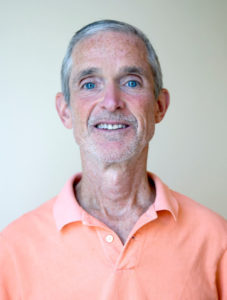 Imagine waking up in the morning with a palpable sense gratitude for being alive and having another opportunity to engage in life. Imagine what it would be like to approach your whole life with gratefulness as the foundation from which you encountered each moment.
Imagine waking up in the morning with a palpable sense gratitude for being alive and having another opportunity to engage in life. Imagine what it would be like to approach your whole life with gratefulness as the foundation from which you encountered each moment.
With all the injustice and suffering we are witness to in our world, this may be hard to envision. We may find ourselves losing hope, growing cynical, and circling our wagons in defense. All the more reason we need a practice to help us keep perspective, sustain our intentions for personal growth, and be a part of changing this doomsday picture.
Practicing gratefulness can transform one’s life by embracing the belief that each day provides us with another opportunity to learn and grow, to awaken more fully. Each interaction is an opportunity to expose our limitations and selfishness, and open our hearts wider to love more fully. It is an approach to life that includes enough present moment awareness to appreciate the daily miracles we tend to ignore: the way the sun rises gloriously each day, the smile of a baby, a hummingbird pausing midair to drink, the embrace of a true friend.
But the practice of gratefulness can go beyond noting down a few things we are grateful for in a given day. It implies an appreciation for all that life offers us, the highs and lows, the moments of bliss and the inevitable losses that veil the heart with sadness. Rather than resisting painful experiences, we can practice embracing the way they call our attention to something in need of healing. Even if it doesn’t come naturally, it’s worth experimenting with the belief that everything that comes to us is for our highest good, a teaching that is found in many wisdom traditions.
In the poem, The Guest House, the Sufi mystic and poet Jalaluddin Rumi wrote:
“The dark thought, the shame, the malice,
meet them at the door laughing,
and invite them in.
Be grateful for whoever comes,
because each has been sent
as a guide from beyond.”
Gratefulness also implies a willingness to be content with the plateaus of life, where we may feel no progress being made, but persist in our efforts nonetheless. We may unintentionally reserve gratitude for moments of success or completion without realizing its potential to support us in sustaining our efforts to serve and make a difference even when no “thank you” appears.
This practice includes reflecting on the efforts of our parents and ancestors to provide and pave the way for us. And what about all the spiritual masters that devoted their lives to make the teachings of Yoga accessible to us, especially the founder of Integral Yoga, Sri Swami Satchidananda? This is why gratefulness is not only an inner appreciation of life’s journey and all we’ve received. It calls for a response. Whenever we sincerely pause to contemplate the magnitude of such blessings and feel the resulting fullness in our hearts, we will naturally be inspired to give back in some way.
One obvious response is to offer heartfelt thanks to those that have bettered our lives. On a larger scale, we can never repay the gift of life itself, the earth and its abundance that feeds and shelters us, the path to awakening offered to us, and the luxury of pursuing the spiritual path instead of simply struggling to survive.
But we can commit ourselves every day to a regular spiritual practice that erodes the confines of the me-centered ego and allows the natural peace of our essence-nature to emerge in its fullness. We can pay attention to the messages of our conscience in the choices we make and we can serve our communities in whatever ways we are prompted.
In these ways, gratefulness can become an underlying source of nourishment that inspires us to persist on the spiritual path despite the prevailing messages of our culture, and to act courageously by embodying the values that are so desperately needed in our world.
About the Author:
 Swami Ramananda is the president of the Integral Yoga Institute of San Francisco and a greatly respected master teacher in the Integral Yoga tradition, who has been practicing Yoga for more than 35 years. He offers practical methods for integrating the timeless teachings and practices of Yoga into daily life. He leads beginner, intermediate, and advanced-level Yoga Teacher Training programs in San Francisco and a variety of programs in many locations in the United States, Europe, and South America. Swami Ramananda trains Yoga teachers to carry Yoga into corporate, hospital, and medical settings and has taught mind/body wellness programs in many places. He is a founding board member of the Yoga Alliance, a national registry that supports and promotes Yoga teachers as professionals.
Swami Ramananda is the president of the Integral Yoga Institute of San Francisco and a greatly respected master teacher in the Integral Yoga tradition, who has been practicing Yoga for more than 35 years. He offers practical methods for integrating the timeless teachings and practices of Yoga into daily life. He leads beginner, intermediate, and advanced-level Yoga Teacher Training programs in San Francisco and a variety of programs in many locations in the United States, Europe, and South America. Swami Ramananda trains Yoga teachers to carry Yoga into corporate, hospital, and medical settings and has taught mind/body wellness programs in many places. He is a founding board member of the Yoga Alliance, a national registry that supports and promotes Yoga teachers as professionals.


